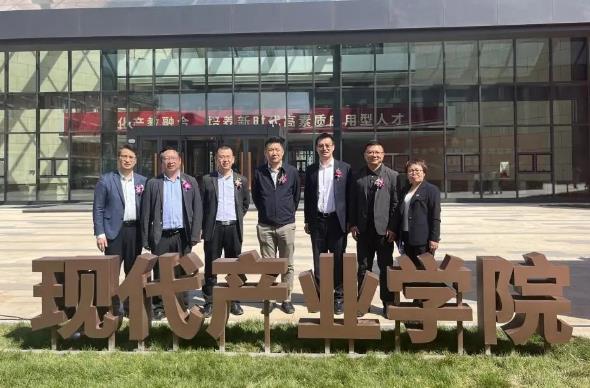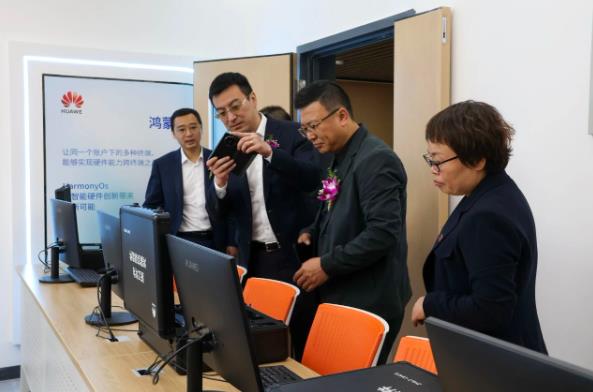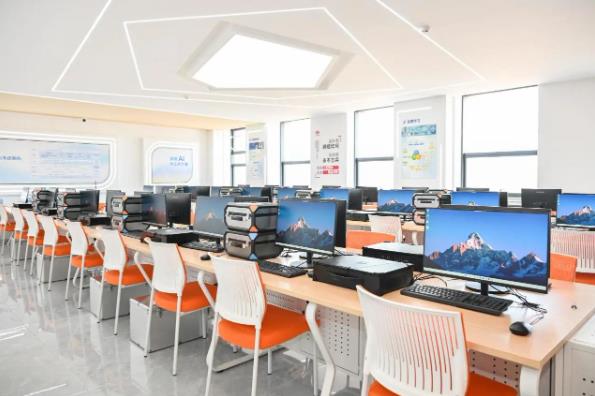【英文网】Experts Visit to JLUAT’s School of Modern Industry for Exchange and Mutual Learning
发布时间:2024-05-15 10:54
Experts' Visit to JLUAT’s School of Modern Industry for Exchange and Mutual Learning
Recently, the School of Modern Industry of Jilin University of Architecture and Technology was officially established, which is a milestone for our university to promote the integration of industry and education, science and education, and achieve the new practice and exploration of "digital empowerment" of traditional disciplines and majors. Yang Bo, Dean of the School of Computer Science and Technology, Hu Liang, Professor, Liu Fu, Vice Dean of the School of Communication Engineering from Jilin University, Ju Baicheng, Deputy Secretary of the School of Information Science and Technology from Northeast Normal University, and other computer discipline leaders and experts and scholars from multiple universities in Jilin visited the School of Modern Industry and conducted in-depth exchanges and discussions on topics such as talents cultivation and integration of universities and corporations.
The School of Modern Industry of JLUAT adheres to the construction concept of "integration of industry and education, collaborative education, and innovation-driven," actively connects with Huawei's corporate ecosystem, and integrates Huawei's new technologies in professional directions such as artificial intelligence, big data, and the Internet of Things. The school closely aligns with the core technology fields of national new infrastructure and digital construction needs and has built a Professional+Information Technology education and teaching platform that integrates multiple disciplines and collaborates on innovation, striving to cultivate high-quality applied talents that meet the needs of industry enterprises.Experts shared their experiences and insights in cutting-edge technology fields such as big data, artificial intelligence, the Internet of Things, etc. They unanimously agree that with the rapid development of technology, the demand for talent in the field of digitalization is showing an increasing trend. Cultivating talents with high professional competence and innovative ability will promote industrial upgrading and economic and social development.

The significance and influence of the School of Modern Industry are not only reflected in the promotion of current talent training models but also in their profound impact on future industrial development and educational reform. Not only can it help promote the new model of industry education integration to take root, and successfully build a close connection bridge between industry and education, but it can also cultivate more talents in the fields of big data, artificial intelligence, and the Internet of Things for the digital economy of the Three Provinces and One Region in Northeast China and even the whole country, promote the optimization and upgrading of regional economic structure, and promote the sustained and healthy development of the economy and society.

In the future, the School of Modern Industry will further improve its curriculum system and practical teaching links, deepen close cooperation and communication with enterprises, and continuously improve the level of education and teaching as well as the quality of talent cultivation. At the same time, the college will actively explore new teaching models and methods to adapt to rapidly changing market demands and industry development trends and build itself into a future-oriented, stable, and dynamic talent innovation service platform, as well as a new model of industry-university research cooperation.
